Five faculty members from across Arts & Science are this year’s recipients of the Faculty of Arts & Science Outstanding Teaching Awards. Established in 1993, the awards highlight the value the Faculty places on excellence in teaching. Recipients are selected based on nominations by peers and students.
This year’s recipients are:
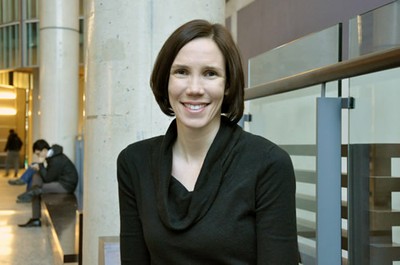
Jennifer Campbell — Computer Science
Jennifer Campbell has taught a variety of undergraduate courses at all levels, and her teaching evaluations are among the very best in the department. Also something of an educational trailblazer, she — with her colleague Paul Gries — developed and taught one of the very first Massive Open Online Courses (MOOCs) offered by the University of Toronto. While the opportunity to teach computer programming to the world was appealing, what was even more interesting was figuring out ways to retool material prepared for the MOOC to improve the learning experience of students on campus. And she did just that by delivering the department’s introductory programming course in the “inverted classroom” style to 275 very enthusiastic students for the first time. Campbell is now putting a Gates Foundation grant to use to study the impact of MOOCs on the student learning experience, a project that will be of value to educators everywhere.
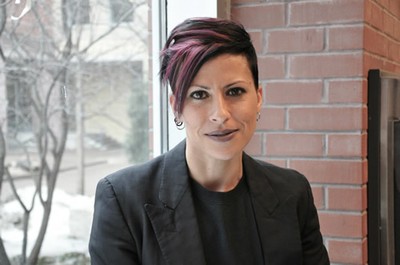
Deborah Cowen — Geography & Program in Planning
Since joining U of T in 2007, Cowen’s student evaluations have been extremely positive, with scores of 6 or 6.5 out of 7 and exceptional retake rates, including a large first year course — Urbanization, Contemporary Cities and Urban Life — that she has taught every year. One of the qualities that makes her such an inspiring teacher is her deep commitment to removing boundaries between the classroom, the city and the world. She does this when she invites former mayor David Miller to a class for a discussion with students or by using a streetcar ride as a classroom where students explore the idea of a city. Cowen has tremendous respect for her students — not only as learners — but as producers of knowledge themselves. Perhaps this student put it best: “It is really cool to have a prof who is so passionate about the material, and it’s also neat to be learning about things that have such tangible pertinence to the realities of life right now.”
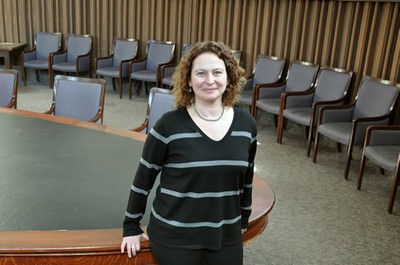
Emily Gilbert — Canadian Studies, University College and Geography & Program in Planning
Emily Gilbert is the director of University College’s Canadian Studies Program and a faculty member in geography. Her teaching evaluations are stellar and comments from students include “amazing,” “fantastic,” “excellent” and “very passionate.” Gilbert — who’s been at the centre of most of UC’s recent innovations in curriculum and course design — spearheaded a new minor program in Asian Canadian Studies, developed new core courses for Canadian Studies as part of the curriculum renewal process and was one of the champions and leaders in the creation of UC One. She also stands out for her commitment to co-curricular initiatives. She played a key role in helping to re-invigorate the Canadian Studies Student Union by serving as their faculty advisor and assisting students in creating a new undergraduate journal, among other initiatives.
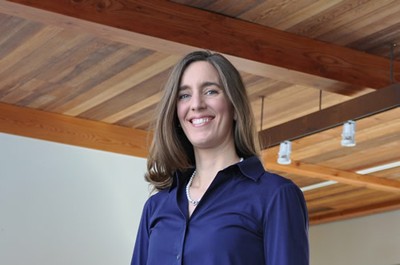
Jennifer Murdock— Economics
In addition to her superlative teaching and laudable evaluations, Jennifer Murdock is credited with improving undergraduate education in economics in many ways. Her website — Teaching Undergraduates at U of T’s Economics Department — is full of material about teaching and administrative issues, as well as best practices. In the classroom, she significantly revamped Quantitative Methods — a course that some commerce and economics students historically viewed with a little trepidation. She also shifted the focus of her industrial organization course more towards empirical issues, made peer-reviewed journal articles an integral part of the curriculum and introduced a significant writing and research assignment. As a member of the Undergraduate Curriculum Committee every year since 2005, she has been very involved in all of the discussions concerning all significant undergraduate program innovations. Most notably, she led the committee that redesigned the commerce sections of economics courses.
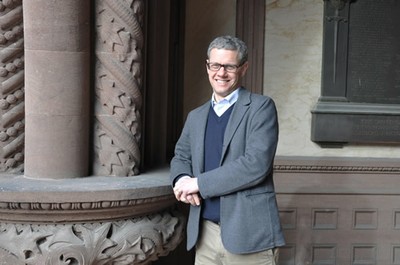
William Robins — English
William Robins’s particular talent is the ability to make that wonderful range of what — at first sight — might seem remote and arcane knowledge, readily accessible to his students. As one of his students put it: “I didn’t know much about Chaucer going into this course but Professor Robins’s enthusiasm for the subject matter and his fantastic lecturing style immediately caught my interest and inspired me to do my best in every assignment.” His students speak of his “eye-opening” lectures that broaden their understanding of the history of literature. But he’s not simply a sage on stage — his students don’t merely passively absorb his analyses. He succeeds in the far more significant and difficult task of heightening his students’ own analytical skills. As one wrote: “Professor Robins’s lectures inspired me to ask my own questions. I often spent time after class thinking through the ideas presented and applying my own ideas to them.” He’s also had a central role in recent important curriculum developments.
David Cameron, dean of the Faculty of Arts & Science, presented the awards on April 24th.

